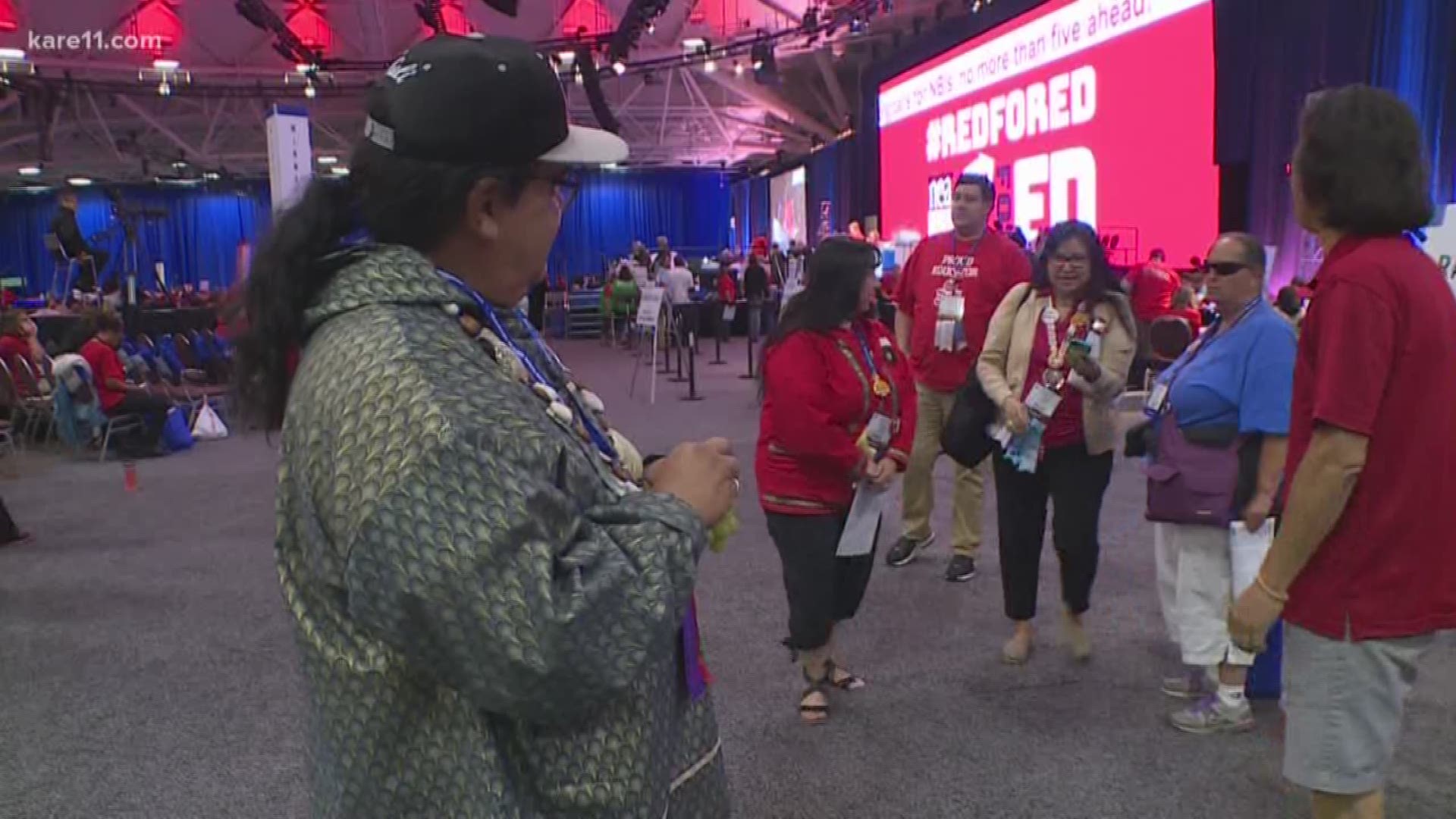MINNEAPOLIS - An influential education group voted Thursday to urge all public schools in the United States to drop Native American mascots, highlighting a long-running debate in high school, collegiate and professional sports.
On the final day of its annual meeting at the Minneapolis Convention Center, the National Education Association's representative assembly approved an item to support "the removal of 'R-skins, Braves and Warriors mascots from public schools."
Agenda items from the NEA, the largest labor union in the entire country, do not have any legally binding impact on school districts.
However, California middle school teacher Marty Meeden — the former chair of the American Indian/Alaska Native Caucus of NEA — said the vote could send a powerful message to the group's three million members nationwide.
"We need to let the local folks know that we, as Native people, are supporting them as educators. Because poor imagery has a whole lot to do with our success and failures as students and adults," Meeden said. "(The mascots) are demeaning to us as Native people."
In Minnesota, only a few public schools still use Native American mascots after the state athletics association discouraged them as early as 1988.
One of those remaining districts is Sleepy Eye, located in a small community about 45 miles west of Mankato. The town was named after a Native American chief, and the school's sports teams play under the "Indians" name.
Sleepy Eye Superintendent John Cselovszki said he completely opposes the NEA's measure.
"It's really a critical element in our tradition and history to keep the name," he said. "We are really proud of it."
Cselovszki said a local tribe granted the district permission to use the Indians name and likeness.
"We would love — and we will want — to keep the name if possible," Cselovszki said, adding that it does not seem there is any local pressure at this time to change the name.
Meeden acknowledged that the NEA cannot force schools to change policy, but he urged them all to consider the painful history many Native American families still feel to this day.
"And to still allow those words to be said and perpetuated, it still keeps us not evn as second-class citizens, but third or fourth-class citizens," he said.
These debates over mascots have often played out in dramatic fashion across the country.
Particularly at the high school level, alumni often complain that removing mascots strips them of their history and team pride. In the National Football League, the spirited debate between Native American groups and the Washington Redskins has received the most publicity, as the team's owner refuses to change the name by citing popular support for the mascot (public polling is often wildly conflicting). Many Native Americans view the team's name as a slur.
At the National Education Association, several Native American teachers said the imagery in sports can have a devastating impact on young students.
"It makes our students feel less than," said Rochester, Minn. teacher Tucker Quetone. "They're seen as a mascot, which is a very static stereotypical image and it reflects poorly on their self-image."
Tracy Hartman-Bradley, who teaches in Omaha, Neb., said the mascots are simply racist.
"It promotes ignorance and it really mocks the culture and the beliefs of the people it's supposed to 'honor,'" Hartman-Bradley said. "It's not an honor."

